|
Traditional ways of analysing protests seemed to have failed in the wake of the sudden explosion of anger, violence and mobilisation all over France and via the internet of the “gilets jaunes” - or yellow vests movement.
To shed light on the dramatic events of the past few weeks, French scholars have applied different lenses to unpack the issues, pointing out that the outbursts have a deeper meaning then simply another French strike against a particular reform or taxation. The French have mobilised over what now appears to be a direct challenge to Macron’s legitimacy and government, as they call for more direct democracy and a real acknowledgement of vital, day to day issues. Claude Poissenot sets out why the collective notion of social class has disappeared in France and that anger is now being experienced on a personal level. For her part, Jen Schradie debunks the idea that the “gilets jaunes” is a Facebook revolution.
We’re also publishing a selection of articles in French, which you can find here.
|
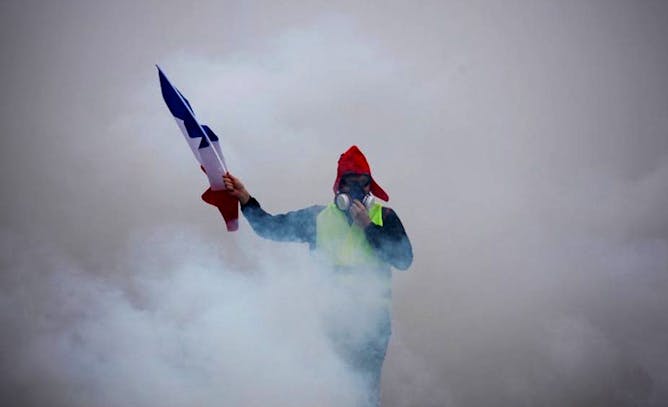
AFP
Claude Poissenot, Université de Lorraine
The violence of the protests that have gripped France, known as the gilets jaunes, is rooted in personal passion and anger.
|
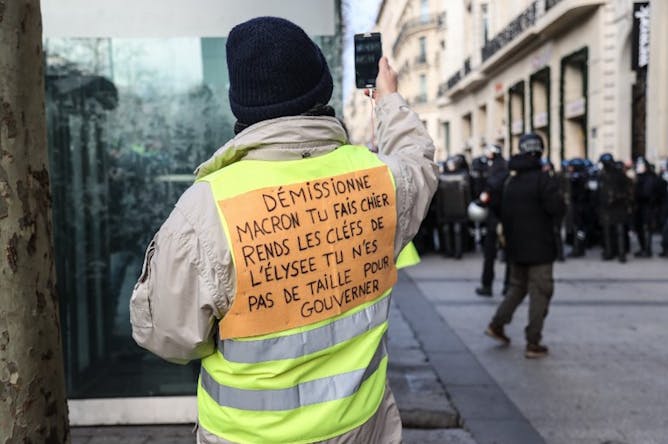
A gilets jaunes “yellow vest” protester on the Champs Elysees avenue in Paris takes a photograph using his mobile phone (December 8, 2018).
Zakaria Abdelkafi/AFP
Jen Schradie, Sciences Po – USPC
There’s an orderly fashion to so-called disruptive "manifestations", as they’re called in French. But the "gilets jaunes" didn’t follow the rules. So who exactly broke the rules?
|
En français
|
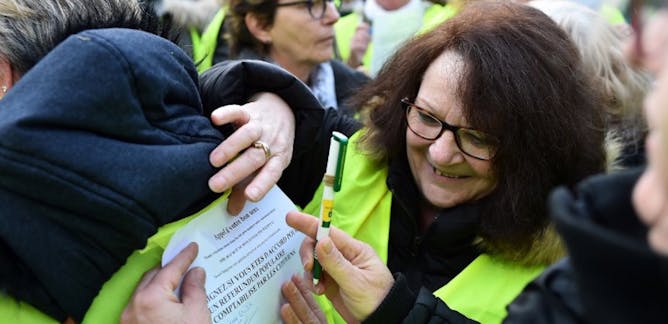
Raul Magni-Berton, Université Grenoble Alpes
Nous ne sommes pas d’accord avec le gouvernement ? Faisons une proposition trouvons des signataires, montrons que la majorité des votants est d’accord avec nous. Oui, mais ce n’est pas si simple.
| |
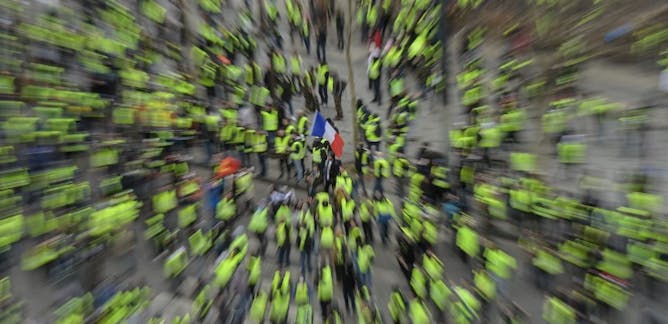
Olivier Costa, Sciences Po Bordeaux
Une minorité, même très mobilisée, même bénéficiant d’un soutien de l’opinion publique, ne peut pas se substituer à la majorité et effacer les résultats des élections.
|

Anne-Sophie Tabau, Université de la Réunion; Marie Thiann-Bo Morel, Université de la Réunion
Les revendications des gilets jaunes témoignent d’une appropriation initiale d’enjeux multiples, où le souci environnemental figure en bonne place.
| |
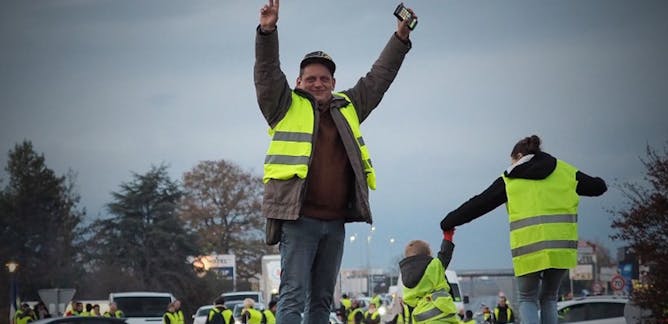
Laurent Mucchielli, Aix-Marseille Université
Quelques enseignements tirés d’une expérience de sociologue ayant travaillé sur des formes de violences sociales et politiques et sur les stratégies sécuritaires déployées par les pouvoirs publics.
|
|
|